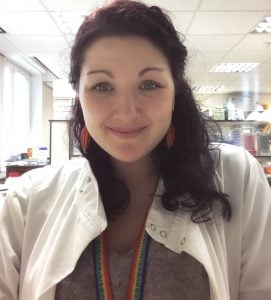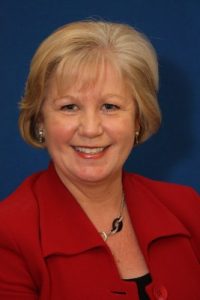This Friday (2 April), as well as celebrating Good Friday, within Castle School, NCEA Trust’s specialist school for children and young people with learning disabilities, and across the wider Trust, we’re also celebrating World Autism Awareness Day.
Autism, or Autism Spectrum Disorder (ASD) is the collective name given to a range of conditions, characterised by challenges with social skills, repetitive behaviours and communication.
Autistic people may find it hard to communicate with others, struggle to comprehend emotions, become anxious in unfamiliar surroundings and find things like loud noises and bright lights overwhelming.
Being diagnosed as autistic does not stop individuals from living a full and happy life, however the nature of Autism may affect focus, attention, transitions, organisation, memory, time management and emotional control – everything we do in life involves these skills, which can make life for people with Autism a huge challenge, especially school-age children.
Celebrating individuality
The acclaimed photographer, Stephen Shore once said: “If you have met one person with autism, you have met one person with autism.”
Every child or young person diagnosed as autistic will have their own unique abilities, interests and learning styles which is why at Castle School, we strive to ensure we provide the best support possible by creating a personalised curriculum, appropriate to the needs of each pupil.
At Castle School, our pupils are at the heart of everything we do and we always respect the children and what is important to them. People with Autism work best in structured environments which are laid out in such a way that the room, and the things in it, tell them what is going to happen. Schedules or work systems which ‘tell’ students what to do are also really helpful to ensure that they can see how much they have to do, the order in which they have to do it and when they will be finished, so there are no surprises.
Many of our Autistic pupils have special interests and it is important that throughout the day that they have the opportunity to pursue and enjoy activities which promote these interests, however we also support children to try new things in a safe environment to help broaden their horizons.
Ensuring every pupil has a voice
Many autistic children find it hard to communicate their thoughts and feelings and have difficulty developing the language skills needed to understand and respond effectively to what others say to them. They also often have difficulty communicating non-verbally, through things such as hand gestures, eye contact and facial expressions.
Supporting our pupils to develop effective communication strategies is a key part of what we do in school, supported by our fantastic Speech and Language Therapists and Occupational Therapists from the NHS.
We use a wide range of approaches throughout the school, from Makaton to Communication Boards, to ensure that our children and young people are supported and can always make their voices heard.
The language of Autism
Last year, the North East Autism Society (NEAS) led a campaign to change the conversations we have around Autism from ‘awareness’ to ‘acceptance’. Why ‘acceptance’? Surely there’s no-one out there who wouldn’t be accepting of someone simply because they’re autistic?
The idea behind the campaign was to change the narrative from one of passive understanding to active comprehension. Awareness, especially in the digital age, can be damaging. There’s so much misinformation available at the click of a button. Acceptance on the other hand requires a commitment to learn, to make changes, to understand and to not see any adjustments as doing anyone a favour – instead it’s about collectively creating a world where we can all thrive.
Celebrating inclusivity
One of the three original schools which made up Northumberland Church of England Academy prior to its devolution to a Multi-Academy Trust in 2009, Castle School shares its main entrance with Bishop’s Primary School’s Josephine Butler Campus and Duke’s Secondary School.
Although we do have staggered start and finish times to ensure that our pupils who don’t respond well to busy environments have enough space to move through the entrance without delays, it is wonderful to see how pupils from the other schools interact together.
There can be times when some Castle pupils may be very anxious and at these moments, Castle staff will always take time to reassure pupils from Duke’s and Bishop’s, explain what’s going on and answer any questions they may have, but for the most part, they are very accepting and willing to offer help where needed.
Sara Wild, Principal at Castle School, commented:
“At Castle School, we’re passionate about creating a safe and caring environment where our pupils can express their individuality while learning vital social and communication skills to support them to live better, more independent lives.
“Each and every one of our pupils who has a diagnosis of Autism Spectrum Disorder is unique and talented in their own special way. We learn as much from them as they learn from us and we’re proud to join in the celebration of their individuality on World Autism Awareness Day.”
To find out more about Castle School, visit www.castle.ncea.org.uk.

 Daniela “Danny” Schnitzler is a 27-year old PhD student at the University of Edinburgh.
Daniela “Danny” Schnitzler is a 27-year old PhD student at the University of Edinburgh. It’s a very long time since I was a pupil, but I can’t ever remember a time at school when anyone spoke about the idea of mental health. At that time, there was a complete stigma around mental illness and it wasn’t a topic of conversation at school or home. Even when starting my teaching career in the early 1990s, mental health didn’t seem to feature highly on the agenda during my PGCE or in school CPD.
It’s a very long time since I was a pupil, but I can’t ever remember a time at school when anyone spoke about the idea of mental health. At that time, there was a complete stigma around mental illness and it wasn’t a topic of conversation at school or home. Even when starting my teaching career in the early 1990s, mental health didn’t seem to feature highly on the agenda during my PGCE or in school CPD.
